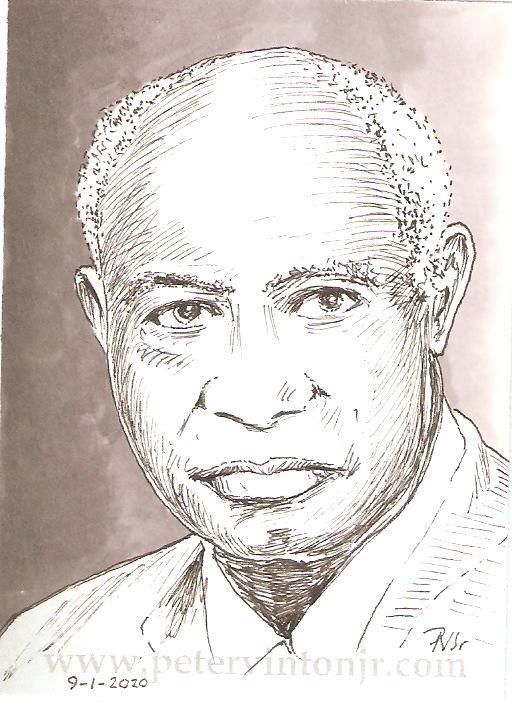
An ongoing illustrative history study
This piece originally posted 10/14/2020
Prelude | 43 | 44 | 45 | 46 | 47 | 48 | 49 | 50 | 51 | Email |
|---|
"A civilization is only judged in its decline."
Educator, debate team coach, columnist, and poet Melvin B. Tolson was born in 1898 Missouri and educated first at Fisk University, then at Lincoln University. He took a position as a speech instructor at Wiley College in Marshall, Texas. Most famously the Wiley College debate team (known as the Wiley Forensic Society) enjoyed, under Tolson's direction, an unbroken 10-year winning streak between 1929 and 1939. This time period in Tolson's life is chronicled in the 2007 biopic The Great Debaters starring Denzel Washington.
After his stint at Wiley, Tolson got his Master's degree in English and Literature, and embarked upon a comprehensive project that interviewed many of the at-the-time titans of the Harlem Renaissance. It was during this time that his gift for poetry came into its full measure, and his first book of poems, "Rendezvous With America," was published in 1944. Such was the accolade that in 1947 Tolson was appointed the Poet Laureate of Liberia. His second book, "Libretto for the Republic of Liberia," honored the centennial of Liberia's founding (1953). Tolson also served two consecutive terms as mayor of Langston, OK (1954-1960). Two of Tolson's most well-known plays were Black No More (1952) and Black Boy (1963). His final poetry book, "Harlem Gallery, Book I," was published in 1965, narrated from the role of a fictional curator who wishes to amplify both Black artists' achievements... and the dilemmas.
Tolson's poetry explores the African American urban experience, taking an uncharacteristically optimistic tone (unlike many of his contemporaries). His "voice" shifts between blues lyrics, dramatic monologues, and free verse. The relative optimism in the verses is particularly significant in the pieces that he composed during World War II --while they certainly address the war's legacy of destruction, they also speak to greater human aspirations and the possibility of achieving a greater democracy for all. A posthumous collection, "A Gallery of Harlem Portraits," was published in 1979 to considerable fanfare.
Next page - Lesson 48: John C. Robinson